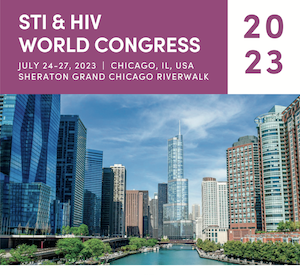Basic & Translational Science
Session: Optimizing urethritis treatment – M. genitalium and pathogens of idiopathic urethritis
O4.6 - Idiopathic nongonococcal urethritis may be due to emerging and spontaneously cleared pathogens
Tuesday, July 25, 2023
15:45 - 16:00 CST
Location: Chicago 8
- DN
David E. Nelson, PhD
Professor of Microbiology and Immunology
Indiana University Schol of Medicine
Indianapolis, Indiana, United States
Primary Presenter(s)
Background: Nongonococcal urethritis (NGU) is a common reason men seek care and are treated with antibiotics but the etiology of half or more of these cases is unclear. The goal of our study was to investigate the etiology of idiopathic urethritis (IU) in men.
Methods: In a case control study of men with NGU (Idiopathic Urethritis Men’s Project, IUMP), we identified 108 asymptomatic controls without urethral inflammation who were NAAT-negative for 4 common NGU pathogens and 99 IU cases who tested negative for the same pathogens but reported symptoms of urethritis and had objective evidence of urethral inflammation. Microorganisms in urethral specimens from the men were identified using deep shotgun metagenomic sequencing, quantitative PCR, culture, and genome re-sequencing. Anti-chlamydial urinary antibodies were quantified by ELISA.
Results: Compared to controls, sequences from 4 microorganisms (Mycoplasma penetrans, Haemophilus influenzae, Adenovirus, and HSV) were significantly more prevalent in IU cases, although Adenovirus and HSV were only enriched using one of two evaluated thresholds. Collectively, these microorganisms were only detected in 30% (30/99) of IU cases at any threshold. In contrast, the complete absence of microorganism sequences was more prevalent in IU cases (60%, 60/99) compared to controls (17%, 18/108) when sequencing depth was normalized based on the number of human sequences in the individual specimens. The prevalence of anti-chlamydial antibodies was higher in pathogen-negative IU cases compared to controls and was more similar to a separate group of 30 men with chlamydial NGU who were enrolled according to the same criteria within IUMP.
Conclusions: Emerging and atypical NGU pathogens are significantly associated with IU, but only account for less than half of IU cases. Compared to controls, men with IU were more likely to have a sparse or absent urethral microbiota and an increased proportion of anti-chlamydial antibodies. We hypothesize that some pathogen-negative IU cases reflect persistent inflammation following spontaneous clearance of urethral infections. As antibiotics would not be indicated for pathogen-negative men with IU, natural history and dyad studies are needed to determine the optimal management of men with IU and their sexual partners.

